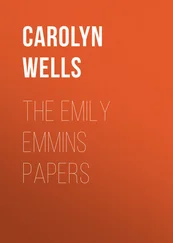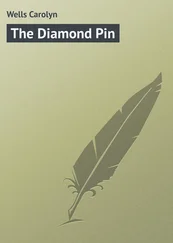Carolyn Wells - The Mark of Cain
Здесь есть возможность читать онлайн «Carolyn Wells - The Mark of Cain» — ознакомительный отрывок электронной книги совершенно бесплатно, а после прочтения отрывка купить полную версию. В некоторых случаях можно слушать аудио, скачать через торрент в формате fb2 и присутствует краткое содержание. Жанр: foreign_prose, на английском языке. Описание произведения, (предисловие) а так же отзывы посетителей доступны на портале библиотеки ЛибКат.
- Название:The Mark of Cain
- Автор:
- Жанр:
- Год:неизвестен
- ISBN:нет данных
- Рейтинг книги:5 / 5. Голосов: 1
-
Избранное:Добавить в избранное
- Отзывы:
-
Ваша оценка:
- 100
- 1
- 2
- 3
- 4
- 5
The Mark of Cain: краткое содержание, описание и аннотация
Предлагаем к чтению аннотацию, описание, краткое содержание или предисловие (зависит от того, что написал сам автор книги «The Mark of Cain»). Если вы не нашли необходимую информацию о книге — напишите в комментариях, мы постараемся отыскать её.
The Mark of Cain — читать онлайн ознакомительный отрывок
Ниже представлен текст книги, разбитый по страницам. Система сохранения места последней прочитанной страницы, позволяет с удобством читать онлайн бесплатно книгу «The Mark of Cain», без необходимости каждый раз заново искать на чём Вы остановились. Поставьте закладку, и сможете в любой момент перейти на страницу, на которой закончили чтение.
Интервал:
Закладка:
The Mark of Cain
CHAPTER I
THROUGH THE GREEN CORD
Judge Hoyt’s strong, keen face took on a kindlier aspect and his curt “Hello!” was followed by gentler tones, as he heard the voice of the girl he loved, over the telephone.
“What is it, Avice?” he said, for her speech showed anxiety.
“Uncle Rowly, – he hasn’t come home yet.”
“He hasn’t? Well, I hope he’ll turn up soon. I want to see him. I was coming up this evening.”
“Come now,” said Avice; “come now, and dine here. I am so anxious about uncle.”
“Why, Avice, don’t worry. He is all right, of course.”
“No he isn’t. I feel a presentiment something has happened to him. He never was so late as this before, unless we knew where he was. Do come right up, won’t you, Judge?”
“Certainly I will; I’m very glad to. But I’m sure your fears are groundless. What about Mrs. Black? Is she alarmed?”
“No, Eleanor laughs at me.”
“Then I think you needn’t disturb yourself. Surely she – ”
“Yes, I know what you’re going to say, but she isn’t a bit fonder of Uncle Rowly than I am. Good-by.”
Avice hung up the receiver with a little snap. She was willing that Mrs. Black should marry her uncle, but she did hate to be relegated to second place in the household. Already the handsome widow was asserting her supremacy, and while Avice acknowledged the justice of it, it hurt her pride a little.
“I’ve asked Judge Hoyt to dinner,” she said, as she returned to her post at the window.
Mrs. Black glanced up from the evening paper she was reading and murmured an indistinct acquiescence.
It was late June, yet the city home of the Trowbridges was still occupied by the family. As Avice often said, the big town house was cooler than most summer resorts, with their small rooms and lack of shade. Here, the linen-swathed furniture, the white-draped chandeliers and pictures, the rugless floors, all contributed to an effect of coolness and comfort.
Avice, herself, in her pretty white gown, fluttered from one window to another, looking out for her uncle.
“Mrs. Black, why do you suppose Uncle Rowly doesn’t come? He said he would be home early, and it’s after six o’clock now!”
“I don’t know Avice, I’m sure. Do be quiet! You fluster around so, you make me nervous.”
“I’m nervous myself, Eleanor. I’m afraid something has happened to uncle. Do you suppose he has had a stroke, or anything?”
“Nonsense, child, of course, not. He has been detained at the office for something.”
“No he hasn’t; I telephoned there and the office is closed.”
“Then he has gone somewhere else.”
“But he said he would be home by five.”
“Well, he isn’t. Now, don’t worry; that can do no good.”
But Avice did worry. She continued to flit about, dividing her attention between the clock and the window.
The girl had been an orphan from childhood, and Rowland Trowbridge had been almost as a father to her. Avice loved him and watched over him as a daughter; at least, that had been the case until lately. A few weeks since, Mr. Trowbridge had succumbed to the rather florid charms of Mrs. Black, his housekeeper, and told Avice he would marry her in a month.
Though greatly surprised and not greatly pleased, Avice had accepted the situation and treated the housekeeper with the same pleasant courtesy she had always shown her. The two “got along” as the phrase is, though their natures were not in many ways congenial.
Avice remained at the window till she saw at last Leslie Hoyt’s tall form approaching. She ran to open the door herself.
“Oh, Judge Hoyt,” she cried, “Uncle hasn’t come yet! There must be something wrong! What can we do?”
“I don’t know, Avice, dear. Tell me all about it.”
“There’s nothing to tell, only that uncle said he would be home at five, and it’s almost seven and he isn’t here! Such a thing never happened before.”
“Good evening, Judge Hoyt,” said Mrs. Black’s cool, measured voice as they entered the drawing-room. “I think our Avice is unnecessarily alarmed. I’m sure Mr. Trowbridge can take care of himself.”
“That is doubtless true,” and for the first time a note of anxiety crept into Hoyt’s tone; “but as Avice says, it is most unusual.”
Mrs. Black smiled indifferently and returned to her paper.
Leslie Hoyt was so frequent a visitor at the house, that he was never treated formally. He seated himself in an easy chair, and took a cigarette case from his pocket, while Avice continued her nervous journeys between the clock and the window.
“We won’t wait dinner after seven,” said Mrs. Black, in a voice that might mean either command or suggestion, as her hearers preferred.
“You may have it served now, if you like,” returned Avice, “but I shan’t go to the table until uncle comes.”
Now, it had been nearly two hours before this that a telephone call had been received at police headquarters.
“Is dees polizia stazione?” Inspector Collins had heard, as he held the receiver to his ear.
Through the green cord the broken voice spoke in a halting way, as if uncertain how to word the message.
“Yes; who is speaking?” Collins replied.
“Meester Rowlan’ Trowbridga, – he is dead-a.”
“I can’t hear you! What’s all that racket where you are?”
“My bambini – my childaren. They have-a da whoopa-cough.”
“It’s more than children making all that noise! Who are you?”
“Not matter. I say, Meester Trowbridga – he dead-a.”
“Rowland Trowbridge dead! Where – who are you?”
“You find-a heem. Bringa da bod’ home.”
“Where is he?”
“Van Cortaland’ Park. By da gollif play. You go finda da man – Bringa da bod’ home.”
“See here, you tell me who you are!”
But a sudden click told that the message was finished, and after a few impatient hellos, Collins hung up the receiver.
“Rubbish!” he said to himself; “some Dago woman trying to be funny. But a queer thing, – Rowland Trowbridge! Phew, if it should be! I’ll just call up his house.”
Collins called up the Trowbridge house on Fifth Avenue. Not to alarm any one he merely inquired if Mr. Trowbridge was at home. The answer was no, and, glancing at the clock, Collins called up Mr. Trowbridge’s office in the Equitable Building. There was no response, and as it was five o’clock, he assumed the office was already closed.
“I’ve got a hunch there’s something in it,” he mused, and acting on his conviction, he called up the Van Cortlandt Park Precinct Station, and told the story.
Captain Pearson, who took the message, shrugged his shoulders at its dubious authority, but he assembled several detectives and policemen, and set off with them in a patrol car for the golf links.
Up to Van Cortlandt Park they went, past the gay-coated, gay-voiced golf players, on along the broad road to the woods beyond.
“By golly! There he is!” cried one of the detectives, whose expectant eyes noted a dark heap on the ground, well back among the trees.
Jumping from the car and running across the uneven, root-roughened ground, they found the dead body of Rowland Trowbridge.
Dressed in his business clothes, his hat on the ground near by, the body was contorted, the hands clenched, and the face showed an expression of rage, that betokened a violent death.
“He put up a fight,” observed Pearson. “Poor man, he had no chance. Somebody stabbed him.”
A gash in the blood-stained waistcoat proved that the aim at the victim’s heart had been all too sure, and his frantic, convulsive struggles of no avail.
Читать дальшеИнтервал:
Закладка:
Похожие книги на «The Mark of Cain»
Представляем Вашему вниманию похожие книги на «The Mark of Cain» списком для выбора. Мы отобрали схожую по названию и смыслу литературу в надежде предоставить читателям больше вариантов отыскать новые, интересные, ещё непрочитанные произведения.
Обсуждение, отзывы о книге «The Mark of Cain» и просто собственные мнения читателей. Оставьте ваши комментарии, напишите, что Вы думаете о произведении, его смысле или главных героях. Укажите что конкретно понравилось, а что нет, и почему Вы так считаете.












